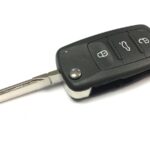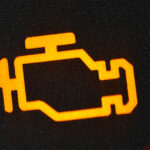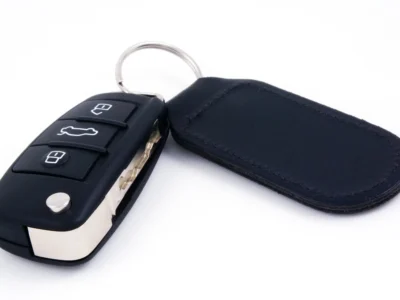
Volkswagen Polo Not Starting: The Complete Troubleshooting Guide

Few experiences are as nerve-racking as turning your key — and hearing nothing. No roar of the engine, no reassuring hum, just silence or a faint click. When your Volkswagen Polo won’t start, it feels like your day has come to a grinding halt. But before assuming the worst, let’s methodically uncover the causes — and how to get your Polo running again.
- 1. Common Reasons Your Volkswagen Polo Won’t Start
- 2. How to Diagnose the Issue
- 3. Battery Problems and Fixes
- 4. Starter Motor Failures
- 5. Fuel Delivery Troubles
- 6. Ignition System Malfunctions
- 7. Immobilizer and Key Issues
- 8. Sensor and ECU Failures
- 9. Fuses, Relays, and Wiring Faults
- 10. Weather-Related Starting Issues
- 11. Battery Jump-Start Procedure
- 12. Preventing Future No-Start Problems
- 13. When to Call a Mechanic
- Frequently Asked Questions
- Final Thoughts
1. Common Reasons Your Volkswagen Polo Won’t Start
A Volkswagen Polo that refuses to start usually indicates a fault in one of four key systems:
- The battery and electrical system
- The starter motor
- The fuel delivery system
- The ignition or immobilizer system
Let’s explore each in depth, so you can pinpoint the problem efficiently.
2. How to Diagnose the Issue
Before tearing anything apart, take note of symptoms:
| Symptom | Likely Cause |
|---|---|
| Complete silence when turning the key | Dead battery or ignition failure |
| Clicking noise but no crank | Weak battery or faulty starter motor |
| Engine cranks but doesn’t start | Fuel or ignition system issue |
| Starts briefly then dies | Immobilizer or fuel delivery fault |
| Warning lights flashing | ECU or sensor malfunction |
3. Battery Problems and Fixes
The battery is the heartbeat of your Polo’s starting system — responsible for powering the starter, ignition, and electronics.
Signs of a Weak or Dead Battery
- Slow or labored engine cranking
- Dim headlights or flickering dashboard lights
- Clicking sound when you turn the key
- Voltage below 12V on a multimeter
Solutions
- Jump-start the car. If it runs afterward, the battery was the culprit.
- Recharge using a smart charger overnight.
- Replace if older than 4–5 years or fails to hold charge.
- Clean terminals to remove corrosion that blocks current flow.
⚙️ Pro Tip: Regularly inspect your Polo’s battery terminals for corrosion, and drive at least 15–20 minutes weekly to maintain charge.
4. Starter Motor Failures
If the battery is fine but your Polo still won’t start, the starter motor may have failed.
Symptoms
- Loud single click when turning the key
- No crank despite full battery
- Occasional starts when tapping the starter housing
Fixes
- Tap test: Lightly tap the starter motor while turning the key — this can temporarily free stuck solenoids.
- Check connections: Ensure all cables to the starter are tight and corrosion-free.
- Replacement: If tapping helps or there’s consistent failure, replace the starter motor.
❗ Caution: Always keep the car in neutral or park and engage the handbrake before testing or working near the starter.
You may be interested in readingVolkswagen Polo Key Won’t Turn: Causes, Fixes, and Expert Tips
5. Fuel Delivery Troubles
Your engine needs air, spark, and fuel. If fuel isn’t reaching the combustion chambers, your Polo won’t fire up.
Possible Causes
- Empty fuel tank
- Faulty fuel pump
- Clogged fuel filter
Diagnostics
- Turn the key to the “On” position. You should hear a faint whirring noise from the rear — that’s your fuel pump priming.
- If you hear nothing, check the fuel pump fuse and relay.
- Replace the fuel filter if it’s old or clogged.
Solutions
- Add fuel if low.
- Replace the fuel pump if no sound or pressure.
- Replace the fuel filter every 40,000–60,000 km for optimal flow.
6. Ignition System Malfunctions
A strong spark is vital. Without it, your Polo will crank but not start.
Causes
- Worn or fouled spark plugs
- Faulty ignition coil
- Bad crankshaft position sensor
What to Do
- Remove and inspect spark plugs for carbon deposits or oil fouling.
- Test ignition coils using a multimeter.
- If spark is absent, check the crankshaft sensor — it controls ignition timing.
Maintenance Tip
Replace spark plugs every 30,000–50,000 km, depending on your engine type (TSI or MPI).
7. Immobilizer and Key Issues
Modern Polos feature an immobilizer system that prevents theft by disabling the engine if an unrecognized key is used.
Signs
- Engine cranks but immediately dies
- Immobilizer warning light flashes
- “SAFE” displayed on dashboard
Fixes
- Try your spare key — your primary key chip may be faulty.
- Replace the key fob battery.
- Resynchronize your key following the steps in your owner’s manual.
- If all else fails, visit a Volkswagen dealer for immobilizer reprogramming.
8. Sensor and ECU Failures
Your Polo’s Engine Control Unit (ECU) relies on sensor data to manage starting and fuel delivery.
If any sensor sends incorrect data, your car may fail to start.
Common Faulty Sensors
- Crankshaft position sensor
- Camshaft position sensor
- Throttle position sensor
Diagnosis
Use an OBD-II scanner to read error codes (P0335, P0340, etc.).
Replace any defective sensors promptly.
9. Fuses, Relays, and Wiring Faults
A single blown fuse or bad relay can cut off power to the starter, fuel pump, or ECU.
Steps
- Open the fuse box under the dashboard or bonnet.
- Identify fuses labeled “START,” “IGN,” or “FUEL.”
- Replace any burnt fuses with the same amp rating.
- Check wiring for signs of corrosion, especially near the battery and grounding points.
Cold or humid weather can cause:
You may be interested in reading Volkswagen Polo Key Won’t Turn: Causes, Fixes, and Expert Tips
Volkswagen Polo Key Won’t Turn: Causes, Fixes, and Expert Tips Hyundai Tucson Common Problems: Complete Guide to the Most Frequent Issues
Hyundai Tucson Common Problems: Complete Guide to the Most Frequent Issues- Battery power loss
- Thickened engine oil
- Moisture in ignition components
Solutions
- Use winter-grade oil (e.g., 5W-30) in colder climates.
- Keep the Polo garaged overnight.
- Apply dielectric grease to spark plug boots to repel moisture.
11. Battery Jump-Start Procedure
A quick jump-start can rescue your Polo from a dead battery.
Steps
- Park a donor car close enough for cables to reach.
- Turn off both vehicles.
- Connect red clamp to the Polo’s positive (+) terminal.
- Connect red clamp to donor’s positive terminal.
- Connect black clamp to donor’s negative (-) terminal.
- Connect the other black clamp to a bare metal point on your Polo (not the battery).
- Start the donor car, wait 1–2 minutes, then start the Polo.
- Let it idle for 10–15 minutes.
12. Preventing Future No-Start Problems
To avoid a repeat of the morning nightmare:
- Drive regularly to maintain battery charge
- Replace spark plugs and filters on schedule
- Keep fuel above a quarter tank
- Have your starter motor and alternator checked annually
- Store the car in dry conditions
13. When to Call a Mechanic
If your Polo:
- Makes grinding or clicking noises after all checks
- Displays multiple dashboard warning lights
- Has no power to the dashboard or lights
…it’s time for professional help.
A qualified mechanic can perform advanced diagnostics using Volkswagen’s VAS or OBD-II tools to pinpoint the exact issue.
Frequently Asked Questions
1. My Polo clicks but doesn’t start — what’s wrong?
Likely a weak battery or failing starter motor. Try jump-starting first.
2. How long should a Volkswagen Polo battery last?
Typically between 3–5 years, depending on driving frequency and climate.
3. Can a bad fuel pump stop my car from starting?
Yes — if the fuel pump fails, the engine won’t receive fuel pressure to start.
4. Does a faulty immobilizer prevent starting?
Absolutely. If the immobilizer doesn’t recognize your key, it cuts ignition.
You may be interested in reading Volkswagen Polo Key Won’t Turn: Causes, Fixes, and Expert Tips
Volkswagen Polo Key Won’t Turn: Causes, Fixes, and Expert Tips Hyundai Tucson Common Problems: Complete Guide to the Most Frequent Issues
Hyundai Tucson Common Problems: Complete Guide to the Most Frequent Issues How to Reset the Check Engine Light on a Hyundai Tucson
How to Reset the Check Engine Light on a Hyundai Tucson5. How do I reset the Volkswagen Polo immobilizer?
Use your spare key or follow the resync procedure in the owner’s manual. If that fails, a dealer must reprogram it.
Final Thoughts
A Volkswagen Polo not starting doesn’t always mean an expensive repair. By systematically checking the battery, starter, fuel, ignition, and immobilizer, you can often find — and fix — the root cause. Stay calm, stay methodical, and your Polo will likely be back on the road in no time.
If you want to know other articles similar to Volkswagen Polo Not Starting: The Complete Troubleshooting Guide you can visit the category Common Problems.
Leave a Reply






More content of your interest